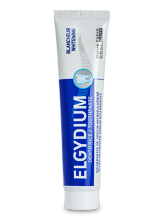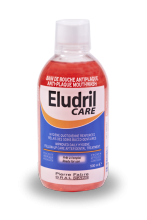Should I Give My Child Fluoride?
Fluoride compounds for stronger teeth
Fluoride compounds are taken up by the teeth and make the enamel and dentine more resistant to acid attacks caused by the bacteria in dental plaque. They also seem to impede the proliferation of some of these bacteria.
There are various fluoride compounds, some of which, such as Fluorinol©, bind more quickly to the teeth.
Fluoride compounds are used in toothpaste, gels for the teeth and gums, mouthwashes, and on dental floss.
Fluoride toothpastes for children
Toothpaste containing fluoride compounds have different concentrations of fluoride. Those for children have lower concentrations than those for adults, and it is important to comply with the age limits. To be effective, they must be used every day.
Between the ages of two and six, toothpaste used must contain no more than 500 ppm fluoride. At this age, children tend to swallow toothpaste, and excessive fluoride intake should be avoided.
The fluoride content in toothpaste used from the age of seven increases to 1000 ppm and, to enhance the protection of the enamel, it is possible to use a fluoride mouthwash, such as ELGYDIUM ENAMEL PROTECTION, which can get to hard-to-reach areas (in the case of braces, for example).
Finally, from the age of 12, fluoride toothpaste for adults (1500 ppm) may be used, and the use of mouthwashes can continue.
Other sources of fluoride
Fluoride is not added to tap water in South Africa. It generally contains less than 0.3 mg fluoride per litre. The health authorities instead chose to enrich cooking salt (to 250 ppm), which must be labelled fluoridated salt.
Some mineral waters contain large quantities of fluoride. Be aware that children aged under six must not regularly drink mineral water containing more than 1 mg fluoride per litre. Mineral waters that are very rich in fluoride should not be consumed before the age of 12.
In certain cases of high risk of tooth decay, a dentist may prescribe fluoride supplements to be taken orally.
Fluoride and babies
Infants (from birth until the age of two) are systematically prescribed fluoride drops (often combined with vitamin D) to prevent rickets and strengthen the milk teeth. To prepare their bottle, unfluoridated water, or water with a very low fluoride content (less than or equal to 0.3 mg fluoride per litre) must be used.

